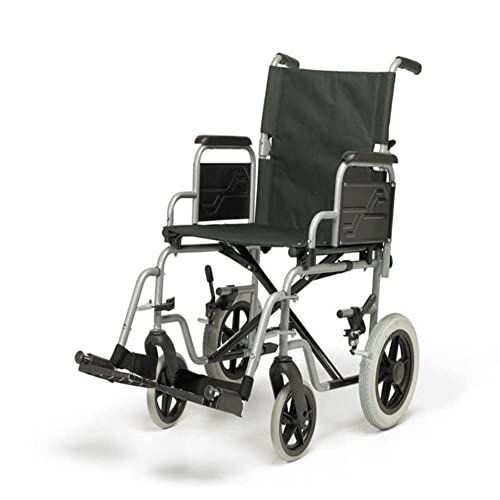Mobility Scooters in the UK: A Comprehensive Guide
In the United Kingdom, mobility scooters are becoming a progressively popular methods of transport for people with mobility scooter uk concerns, providing them with the flexibility to navigate their communities separately. These motorized vehicles are created to assist those who have difficulty walking or using a manual wheelchair, offering a useful and comfy solution for everyday travel. This post digs into the world of mobility scooters in the UK, exploring their advantages, legal requirements, and how to pick the right one.
Introduction to Mobility Scooters
A mobility scooter is a battery-powered car that normally has three or four wheels, a seat for the driver, and handlebars for steering. They are created to be simple to use and keep, making them perfect for older adults and individuals with impairments who want to maintain their independence. Mobility scooters can be found in numerous sizes and designs, each dealing with various needs and choices.

Advantages of Mobility Scooters
- Increased Independence: Mobility scooters allow users to take a trip longer ranges without the physical stress related to strolling or utilizing a manual wheelchair. This independence can considerably improve their lifestyle.
- Economical: Compared to other motorized lorries, mobility scooters are reasonably affordable. They likewise need very little maintenance, which can conserve users a lot of money in the long run.
- Relieve of Use: Most mobility scooters are created to be easy to use, with user-friendly controls and comfortable seating. They are often light-weight and can be quickly disassembled for transportation.
- Enhanced Social Interaction: By enabling users to venture out more frequently, mobility scooters can assist lower sensations of seclusion and isolation, promoting social connections and community participation.
- Enhanced Safety: Mobility scooters are equipped with functions such as headlights, brake lights, and horns, making them much safer for use on roadways and in public spaces.
Types of Mobility Scooters
When picking a mobility scooter, it's essential to think about the type that best matches your needs. Here are the main types readily available in the UK:
Class 2 Mobility Scooters:
- Speed: Limited to 4 miles per hour (6.4 km/h)
- Usage: Suitable for pavements and pedestrian areas
- Functions: Compact and lightweight, foldable for easy transport
Class 3 Mobility Scooters:
- Speed: Can rise to 8 mph (12.9 km/h)
- Usage: Suitable for both pavements and roads, provided they are registered and insured
- Functions: Sturdier construct, typically with more advanced features like suspension and bigger batteries
Strong Mobility Scooters:
- Capacity: Designed to support users weighing as much as 400 pounds (181 kg)
- Usage: Ideal for those who need a robust and resilient scooter
- Functions: Reinforced frame, wider seat, and enhanced stability
Off-Road Mobility Scooters:
- Terrain: Built to manage rough and unequal surfaces
- Use: Suitable for users who delight in outside activities like treking or fishing
- Functions: All-terrain tires, high ground clearance, and powerful motors
Legal Requirements for Mobility Scooters in the UK
Using a mobility scooter in the UK includes specific legal responsibilities. Here are the bottom lines to think about:
- Registration and Insurance:
- Class 2 Scooters: No registration or insurance needed
- Class 3 Scooters: Must be signed up with the DVLA, guaranteed, and display a legitimate MOT certificate if used on roadways
- Driver Requirements:
- Age: Users must be at least 14 years old
- Health: No specific health conditions are needed, but users ought to have the ability to control the scooter safely
- Speed Limits:
- Class 2 Scooters: 4 miles per hour (6.4 km/h) on pavements
- Class 3 Scooters: 8 mph (12.9 km/h) on roadways, 4 mph on pavements
- Safety Equipment:
- Lights: All scooters used on roads must have front and rear lights, indicators, and a horn
- Reflectors: Required for usage on roadways, especially throughout low presence conditions
- Tax and Parking:
- Tax: Class 3 scooters are exempt from automobile tax
- Parking: Users can park in designated disabled parking spaces with a valid Blue Badge
How to Choose the Right Mobility Scooter
Choosing the best mobility scooter involves considering several factors:
Mobility Needs:
- Range: How far do you need to travel?
- Surface: Will you be utilizing the scooter on pavements, roads, or off-road?
- Weight Capacity: What is the maximum weight the scooter requires to support?
Budget plan:
- Initial Cost: Mobility scooters can range from a couple of hundred to a number of thousand pounds
- Ongoing Costs: Consider the expense of batteries, maintenance, and insurance coverage
Features:
- Comfort: Look for a scooter with a comfy seat and adjustable controls
- Storage: Some scooters provide additional storage for shopping bags or personal products
- Mobility: If you require to transport the scooter, choose a design that is lightweight and foldable
Reputation and Support:
- Brand: Research reputable brands known for their quality and dependability
- Warranty: Check the guarantee duration and what it covers
- Client Support: Ensure the manufacturer or seller provides good client assistance and service
FAQs About Mobility Scooters in the UK
Do I need a license to drive a mobility scooter?
- No, you do not require a driving license to operate a mobility scooter in the UK. Nevertheless, Class 3 scooters should be signed up with the DVLA and insured if used on roadways.
Can I utilize a mobility scooter on the pavement?
- Yes, both Class 2 and Class 3 scooters are enabled on pavements, however Class 3 scooters are restricted to 4 mph.
Are there any constraints on where I can use a mobility scooter?
- Class 2 scooters are limited to pavements and pedestrian locations. Class 3 scooters can be used on roadways, however they need to satisfy particular legal requirements.
How do I maintain my mobility scooter?
- Routine upkeep includes examining battery levels, tire pressure, and brake functionality. It's also crucial to clean up the scooter regularly and keep it in a dry place.
Can I get a mobility scooter through the NHS?
- The NHS offers mobility scooters through the Disabled Living Allowance (DLA) or Personal Independence Payment (PIP). You can likewise purchase or rent a scooter from a personal retailer.
Is a mobility scooter tax-deductible?
- Sometimes, the expense of a mobility scooter can be declared as a medical expense. Consult a financial consultant for particular guidance.
Tips for Using a Mobility Scooter Safely
- Use Appropriate Clothing:
- Wear comfortable and weather-appropriate clothes. Think about using a high-visibility coat when utilizing the scooter on roadways.
- Keep the Scooter:
- Regularly check the battery, tires, and brakes to guarantee the scooter remains in good working condition.
- Follow Traffic Rules:
- Obey traffic indications and signals, and utilize designated pedestrian and cycle paths when possible.
- Usage Safety Equipment:
- Always use the headlights, brake lights, and horn, particularly during low presence conditions.
- Bear in mind Others:
- Be courteous to pedestrians and other road users. Decrease when approaching congested areas.
Mobility scooters are an important tool for people in the UK who face mobility obstacles. They provide a range of advantages, from increased self-reliance to improved security, making them a popular option for older grownups and people with specials needs. By understanding the various kinds of scooters, legal requirements, and how to pick the right one, users can enjoy the freedom and convenience these lorries provide. Whether for daily errands or recreation, a mobility scooter can considerably improve the lifestyle for lots of people.
Additional Resources
- DVLA Website: For info on signing up and insuring a Class 3 mobility scooter
- Age UK: Offers recommendations and support for older grownups considering a mobility scooter
- Disability Rights UK: Provides guidance on accessing mobility scooters through financial assistance programs
By putting in the time to research study and pick the best mobility scooter, users can enjoy higher self-reliance and a more active way of life.








